Some Little Infamy
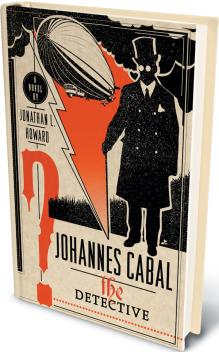 I have been asked to write a few words on how the Johannes Cabal novels came to be published with a particular view to explaining some of the intricacies of the publishing trade. Because I am nothing if not didactic (“Didactic” means, among other things, to speak in a lecturely manner. I hope you’re taking notes – there will be a test afterwards), I have also added a few notes of advice at the end for folk who want to get into the professional novel writing gig.
I have been asked to write a few words on how the Johannes Cabal novels came to be published with a particular view to explaining some of the intricacies of the publishing trade. Because I am nothing if not didactic (“Didactic” means, among other things, to speak in a lecturely manner. I hope you’re taking notes – there will be a test afterwards), I have also added a few notes of advice at the end for folk who want to get into the professional novel writing gig.
There is no precise moment when Johannes Cabal leapt from my brow, side, or any other part of my anatomy. He was, as is often the way, formed by a slow aggregation of assorted ideas over quite a lengthy period that probably starts sometime in the mid to late 1980s. I had and, I must admit, still have a habit of inventing stories for my own amusement with no intention of writing them down. Usually the reason for not taking it too seriously is because I’m playing with other people’s characters, and the copyright situation discourages me from making the stories concrete; virtual fanfic, if you like.
Back in 1985 I saw a film that, as a Lovecraft fan, I was all set to hate. Instead, having seen Re-Animator I came out of the cinema enthused and excited by such a gonzo approach to Lovecraft’s work. Inevitably, I started playing around with ideas for a sequel. There used to be an old vicarage in Kearsley, southwest of Bolton on the road to Manchester, that caught my eye whenever I went by. It was a tall, severe, Victorian building with a large, circular window on its attic floor, glaring out from beneath the eaves. The window made me think of a Lovecraftian tale, and I imagined a rival to Herbert West living there. Unlike West, however, he used magic upon which he had imposed a scientific rigour. Herbert West comes to him to collaborate with predictably gory results.
I never got very far with this particular story because I found myself becoming more interested in the unnamed magic-using re-animator.
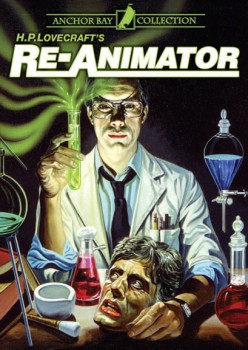 He was English to start with – purely because the vicarage was in England – but at some point he became German. I’m not sure why. Perhaps it was the national stereotype of efficiency bleeding into the mix, perhaps purely because I liked the idea of a German protagonist, I truly have no idea.
He was English to start with – purely because the vicarage was in England – but at some point he became German. I’m not sure why. Perhaps it was the national stereotype of efficiency bleeding into the mix, perhaps purely because I liked the idea of a German protagonist, I truly have no idea.
Somewhere along the line, the name “Johannes Cabal” appeared. I liked it for the simplicity of the forename followed by an enigmatic surname, in the mode of Blackwood’s “John Silence.” Perhaps it is melodramatic, but it looks nice on the page and upon the tongue and, in any case, with the character’s strong Victorian and Edwardian bias in tone, melodrama rarely goes astray.
The genesis of the first Cabal novel, Johannes Cabal the Necromancer can be dated with some accuracy. I have an old notebook that, given datable entries around it, allows me to say the first notes for Necromancer specifically – rather than ideas for short stories – were made in 1990.
It would be lovely to report that I leapt straight into writing the novel, but I did not. The concept of Cabal continued to burble around in my mind for some years following until one day, bored, I wondered just how difficult can it be to write a book, anyway?
The first chapter flowed delightfully, easily, invigoratingly, and entirely misleadingly out, and I thought, “Well, this is easier than I thought,” and carried on.
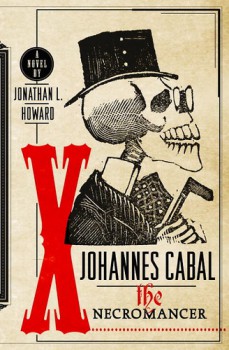 Oh, Chapter 1, you deceitful hussy. I’ve written six novels so far, and Chapter 1 is always easy. It’s the jaunty first steps on the journey, with a smile on your face and a song in your heart, all those wonderful ideas that have been begging to be set down finally blazing into being.
Oh, Chapter 1, you deceitful hussy. I’ve written six novels so far, and Chapter 1 is always easy. It’s the jaunty first steps on the journey, with a smile on your face and a song in your heart, all those wonderful ideas that have been begging to be set down finally blazing into being.
But soon enough the weather closes in, and you lose your way in the gloom, and that brilliant idea that was going to carry you through the harsh badlands of the second act turns out to be a asthmatic donkey made out of bus tickets and lint, and you start to realise the gig’s a bit harder than you’d given it credit for. Things change in all manner of interesting ways and what you come up with along the way is often more interesting than what was in the plan you carefully worked out weeks ago, but which now seems ridiculously naive.
It took a while, the best part of a year, to write the first draft. Even before it was finished, I was sending submission packages to literary agencies seeking representation.
This is actually a bad thing to do; if an agent shows interest after reading the first three chapters and a synopsis, the first thing they will ask to see is the full manuscript. If you haven’t got one to show them, then they have no guarantee that you are actually capable of finishing a draft.
Even after I did have a full MS, however, nobody showed much interest. Getting out of the slush pile is hard, and doing it with a book that combined dark fantasy with humour wasn’t a good bet. It’s a subgenre of a subgenre, and a difficult sell.
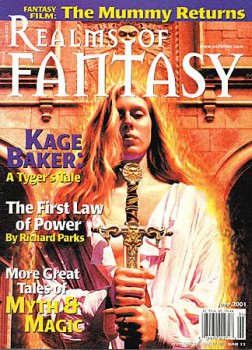
I forget how many submission packages I sent out, only that I got the same number of rejections back. But, at least if had given me a whole novel of working with a cast of characters, and I liked writing about Cabal.
So, I wrote a short story about him based on an idea that had been kicking around in my head since those first notes in the early ‘nineties, a story called “Johannes Cabal and the Blustery Day” that takes place almost entirely within Cabal’s own home. “Blustery” joined a few other shorts I’d been sending around the magazines with no obvious success.
As my writing improved, the number of form rejections decreased in favour of personalised rejections, often saying whatever story I’d sent for consideration wasn’t quite right for the publication in question but they would be interested in seeing other stories from me. It was encouraging – at least I knew I was getting closer – but I still wasn’t getting any acceptances.
Then finally, it happened. An odd little ghost story of sorts called “Between the River and the Road” that had been sent to Realms of Fantasy some months before and which I’d assumed had been lost in the slush was accepted for publication, in the June 2001 issue.
It’s hard to explain how much joy your first sale gives you. It’s also important because it gets your work out there and shows that you can write to a publishable standard.
I’d heard as much, but it is true. That first story gave me something to mention in future covering letters sent with submissions, and a track record is the sort of thing editors take note of.
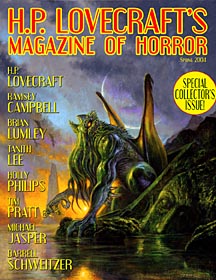 That first Cabal short, “Johannes Cabal and the Blustery day” had done the round of likely magazines that might carry it and had come back with rejections, albeit encouraging “it’s good, but not right for us” sort of rejections. Then, months later, I unexpectedly got an email from George H. Scithers who’d handled the story when it arrived at Weird Tales.
That first Cabal short, “Johannes Cabal and the Blustery day” had done the round of likely magazines that might carry it and had come back with rejections, albeit encouraging “it’s good, but not right for us” sort of rejections. Then, months later, I unexpectedly got an email from George H. Scithers who’d handled the story when it arrived at Weird Tales.
He wrote to say that he’d enjoyed it a lot and, even though not right for WT at that time, he’d salted it away for a possible future project. That project was now going into production, and would I agree to it appearing in the first issue of H.P. Lovecraft’s Magazine of Horror?
I considered this very carefully for probably the best part of twelve nanoseconds before writing back to say, yes, I was amenable to the idea.
“Blustery” appeared in #1, illustrated by George Barr no less, and the second Cabal story, “Exeunt Demon King,” was published in #3. George Scithers asked me if I’d ever considered writing a novel about Cabal, to which I replied it just so happened…
He liked it a lot, but said he felt that there was a problem with the first chapter. Where it should draw the reader straight in, it fiddled around in a desultory manner and didn’t even introduce Cabal until a couple of thousand words had passed. He was strongly of the opinion that, if I cut to the chase rather faster, the first chapter would be that much stronger for it.
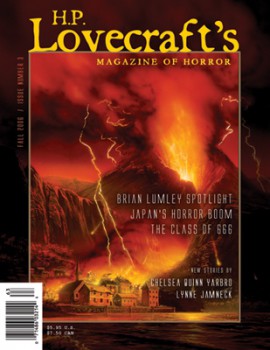 Here I committed a stupid, egotistical blunder. I ignored his advice. I wanted the opening to have that sort of very wandering-around-the-houses-before-getting-to-the-point opening so beloved of Victorian and Edwardian writers, and I intended to keep it. So, there it stayed, and the MS went out to no new prospects because I had run out of agencies to try.
Here I committed a stupid, egotistical blunder. I ignored his advice. I wanted the opening to have that sort of very wandering-around-the-houses-before-getting-to-the-point opening so beloved of Victorian and Edwardian writers, and I intended to keep it. So, there it stayed, and the MS went out to no new prospects because I had run out of agencies to try.
It took a slightly bizarre series of events to lift the novel out of the slush piles and under the more concentrated attention of agents. I have a friend, and you will forgive me if I use no names in this part of the narrative, who I have known for many years. I was always the one who was going to get published and be a writer, while she was going to just give it a go as a bit of a hobby.
Well, she had worked a sight harder on her “hobby” than I did with my theoretically serious attempt to become a writer and, yes, she got published first. First in literary magazines – she is not a genre writer – and then she got a good book deal and was able to do it as the day job. We had always sent each other samples of our work, and I told her about “Exeunt Demon King” being published and enclosed a copy as an afterthought in a letter.
I must emphasise, because I know how it looks, this was done with no ulterior motive. Her literary agent was and is a very literary agent, and I knew he would have zero interest in representing me, nor would I have imposed upon my friend. For her part, when she wrote back she mentioned how she’d enjoyed the story and she could see why they’d published it. And that was that.
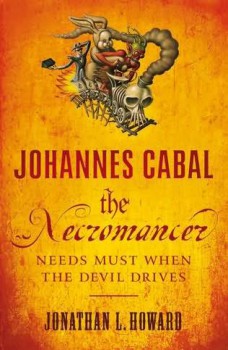 My slow plod to publication has been marked by periods of several months of percolation between somebody seeing my work and then acting upon it: “Between the River and the Road” was in the slushpile at Realms of Fantasy for several months before they accepted it; George H. Scithers held onto “Johannes Cabal and the Blustery Day” for about a year after Weird Tales rejected it; now it was about three months before I got another one of those unexpected but wonderful messages, this time from my friend. She said there was something very appealing about the protagonist and she found herself thinking about the story quite often. Had I ever considered working the story up into a novel? To which I replied that it just so happened…
My slow plod to publication has been marked by periods of several months of percolation between somebody seeing my work and then acting upon it: “Between the River and the Road” was in the slushpile at Realms of Fantasy for several months before they accepted it; George H. Scithers held onto “Johannes Cabal and the Blustery Day” for about a year after Weird Tales rejected it; now it was about three months before I got another one of those unexpected but wonderful messages, this time from my friend. She said there was something very appealing about the protagonist and she found herself thinking about the story quite often. Had I ever considered working the story up into a novel? To which I replied that it just so happened…
She asked me to put together a submission package, just as if I was sending it to an agent, but to make sure it was as good as I could get it. She would then look at it as an agent would and point out any problems she could see. It was a very kind offer, and I did as she asked.
You can imagine what an idiot I felt when she got back to me to say she liked it a lot, but that first chapter was killing the novel’s momentum right from the beginning – exactly the same criticism George Scithers had made. I hadn’t been bright to think I knew more about it than a famous editor like George, and this confirmed it. I swallowed my humble pie and heavily rewrote the offending opening.
Now I had a greatly improved submission package. Agencies don’t really approve of having the same book sent back to them for consideration, but the revised opening did a much better job of representing the novel as a whole so I decided to risk it and was going to send out a round of resubmissions. As it turned out, however, I didn’t need to.
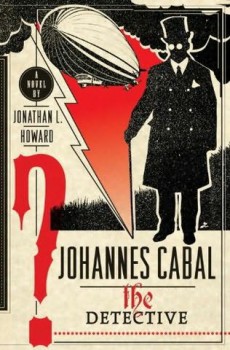 My friend showed the package to her agent, the very literary literary agent mentioned previously for his advice. This is not something he was obliged to give – I was not his client, after all, and time is money – so it wasn’t something she asked lightly. The agent said it was not his cup of tea, but that it was undeniably well-written (hey, I’m just saying what he said) and, very importantly, it was sellable.
My friend showed the package to her agent, the very literary literary agent mentioned previously for his advice. This is not something he was obliged to give – I was not his client, after all, and time is money – so it wasn’t something she asked lightly. The agent said it was not his cup of tea, but that it was undeniably well-written (hey, I’m just saying what he said) and, very importantly, it was sellable.
Never forget that publishing is a business. Just because something is well-written doesn’t mean anybody will want to buy it. Being told by a highly regarded agent that your work is eminently publishable is gold. But, apart from making my ego glow happily, he did more. He passed the package onto another agent into whose specialities a book like Johannes Cabal the Necromancer would fall very neatly. He liked it, asked to see the rest of the MS, and then, dear reader, he offered to represent me.
I won’t say that, immediately I had an agent, everything was rainbows and unicorns. It took a few months for the first unicorns to turn up, but I am in the happy position of having a very good agent with whom I get on swimmingly. So, if I can give any advice to upcoming writers it would be this.
- Write. Yes, I know you’ve heard this one before, but it’s startling how few people take it seriously. Write lots. Write different things. Write shorts and at least have a shot at writing a novel. I had a go at NaNoWriMo last year and it was fun. Harrowing, but fun. Even if you end up with an incoherent story at the end of it, don’t worry. Writing the first draft is the easy bit, anyway. The real work is in the rewrites. You can fix all your broken bits then.
- If you’re going to pitch a novel, pitch it only when you’ve completed a draft and got it polished. Your window of attention when an agent reads your submission chapters is very short indeed and they are not obliged to read past the first bad sentence they come across, even if it’s the first line of the first chapter. You are trying to enter a professional field; be professional in how you set about it.
- Take advice. Remember that the point of publishing is that a lot of people will see your work, so if people who know what they’re talking about – like George H. Scithers and my friend in my case – point out problems, then swallow your pride and do something about it. “Oh, they just don’t get it” is no sort of response. If they didn’t get it, the chances are nobody will.
- Pitch to agencies, not publishers. There are two reasons for this. Firstly, the publisher does not want to see your novel unless it comes via an agency. They just don’t. They’ve got their work cut out for themselves without having to swim through a pile of terrible novels, handwritten in green ink on butcher’s paper, in the faint hope that the next bestseller is in there. Publishers know that agencies have high standards and act as a filter so that no green ink reaches them. Once again, because it bears repeating, publishing is a business, and time is money. They have neither the time nor the inclination to read the slushpile unless things are really slow, and while we’ve all heard the stories of the gleaming gems pulled from the slush, those are rare stories for a reason. Secondly, agents know the publishers, they know the market, they know the pitfalls, and they know the ropes. Agents will take you on if they think they have a decent chance of placing you with a publisher. They will then target not only the right publishers, but the right people within those publishers, people they usually already have a working relationship with. Then, assuming your book is placed, there will be legalities involved. These are usually quite standard, but there can be variations, and it is part of an agent’s job to be savvy to them. Not least, your agent will fight your corner when the deal is struck, and will get you the best deal they can. Yes, you pay for the service, but a good agent is worth it.
One last thing. George Scithers died last year, and I know I’m far from alone in missing him. Thanks, George. You were right about that bloody chapter one opening, too.
[…] This post was mentioned on Twitter by vapors24401, Jonathan Howard. Jonathan Howard said: Little piece up on #BlackGate about how the Johannes Cabal stories came to be written and published. http://bit.ly/exjNPj […]
Thank you for a detailed and interesting behind-the-scenes look at the writing process. I enjoyed this a lot.
[…] Katya’s World was published by Strange Chemistry on November 13, 2012. It is 320 pages in paperback, priced at $9.99 ($6.99 for the digital edition). Learn more at the Strange Chemistry website, and read Jonathan’s thoughts on writing the Johannes Cabel books right here at Black Gate. […]
[…] recent novel was Katya’s World, the first book of The Russalka Chronicles. Read Jonathan’s article on writing the Johannes Cabel series, and his interview with John Joseph […]
[…] John Silence popped up again in Jonathan L Howard’s Black Gate‘s article on his own occult investigator, Johannes Cabal, “Some Little Infamy“: […]
[…] Way of the Wizard, and, most recently, Fantasy Magazine. Recently, he published an article over at Black Gate about the genesis of his brilliant (if easily-aggravated) main character and his personal journey […]